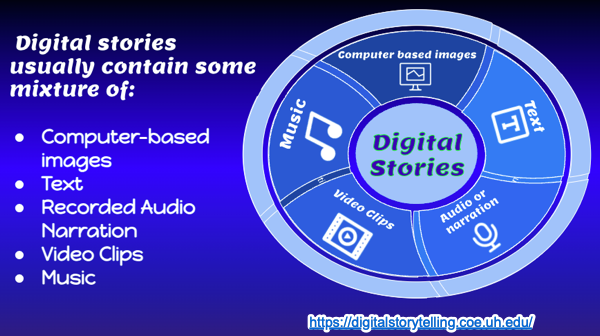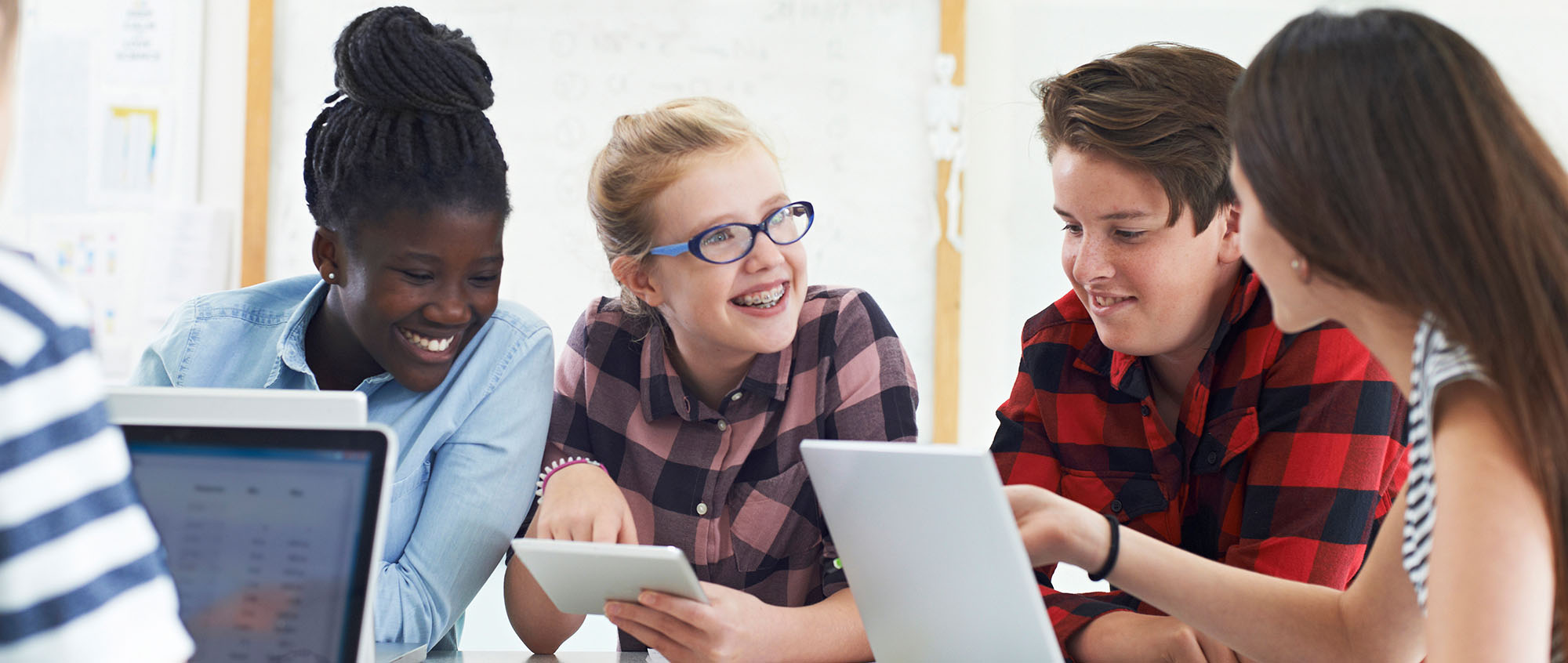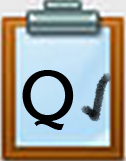Q4 Finalize It!: Curate Media
INTRODUCTION
This part of the digital story creation involves curating your media.
- Curate media: Curate media is a process of selecting, organizing and sharing media elements to form part of a collection for a creative work.
- Media elements: Media elements refer to different digital sources such as images and photos (png, jpg), sound files (mp3), and video files (mp4).
You will be completing a multi-step process of searching and analyzing different media elements to give meaning to your story and make it interesting and relevant to your intended audience. As you locate media it is important to organize the media to save the source to a folder, the URL, and/or creator information to be able to give credit to it.
FOUR THINGS TO KEEP IN MIND WHEN SELECTING MEDIA
- Media should be chosen purposefully to enhance your topic and message (avoid extra images you don't need if they don't add significantly to the story).
- Media used must adhere to copyright laws (save the filename, URL to the source and author).
- Save your work often, you may find it helpful to create a file folder to save them into.
- Privacy is important. If you think you might want to share your video with a global audience later, you should not include an image of yourself or your full name.
Check with your teacher about which and how many media elements need to be included in your digital story such as text, images, photos, audio (narration), sounds, music, video clips, animation and interactive elements.
STEPS
- Check with your teacher to decide how much time will be available to curate your media.
- Open your storyboard (created in Quest 3) in a new window.
- Review each part of your storyboard and begin locating and identifying specific media elements for each part, saving a link to the resource, or directly inserting an image or photo.
If you are already working with a:- Canva storyboard, you will have a rich set of media resources to add to it
- Google slide deck as your storyboard, you will have the resources from the Insert menu to select from as well as any you add or link to it.
- PowerPoint slideshow as your storyboard, you will have resources from the Insert menu to select from as well as any you add or link to it.

COPYRIGHT RESOURCES
Review the tools available to help when citing your source featured in Thing 10. Search Strategies
For Copyright Laws review the resources in Thing 7 Be Legal and Fair
Helpful Media Resources
HELPFUL Media Resources
- The Advantages and Disadvantages of Different Media Document has resources for animation, recording audio, cartoon creation, infographics, and screen recording.
- ClipArt Collections for classroom use: ClipArt ETC "All images are appropriate for classroom use. You'll find no advertisements, pop-ups, or inappropriate links here. A friendly ETC license allows teachers and students to use up to 50 free clipart items in a single, non-commercial school project without further permission."
- Digital Images
- Lifeofpix: Free images and photos with no copyright restrictions that include high-resolution photographs
- Photos For Class: provides a curated collection of images specifically designed for educational use, offering a safe and filtered search engine
- Picography: offers free, high-resolution photos that are licensed under Creative Commons CCO
- Pics4Learning: a curated collection of copyright-friendly photos and illustrations that can be used for classroom projects, websites, videos, portfolios, and other educational purposes
- Google Images Thing #10 Digital Images
- Creative Commons Images Thing #10 Digital Images
- Editing Digital Images and Photos
- iPiccy: a free online and easy website resource for photo editing and sharing application with tools for editing, enhancing, and customizing photos.
- Pixlr: offers basic online photo editing and graphic design tools.
- Canva Online Photo Editor: edit photos, add effects, and remove backgrounds.
Competencies & Standards
MITECS Michigan Integrated Technology Competencies for Students, and
1. Empowered Learner
c. Use technology to seek feedback that informs and improves their practice and to demonstrate their learning in a variety of ways
3. Knowledge Constructor
a. Plan and employ effective research strategies to locate information and other resources for their intellectual or creative pursuits
4. Innovative Designer
a. Know and use a deliberate design process for generating ideas, testing theories, creating innovative artifacts or solving authentic problems
6. Creative Communicator
a. Choose the appropriate platforms and tools for meeting the desired objectives of their creation or communication
b. Create original works or responsibly repurpose or remix digital resources into new creations
d. Publish or present content that customizes the message and medium for their intended audiences
Websites and Documents
Websites
- Book Creator
- Canva Online Photo Editor
- ClipArt ETC
- ClipArt ETC Licenses
- iPiccy
- Lifeofpix
- Photos For Class
- Picography
- Pics4Learning
- Pixlr
Videos from Outside Sources
- Canva Slideshow Maker with two tutorial videos
- Create Easy Videos With Canva (3:32) How to Edit a Camva Video
- How to Create a Slideshow Video for Beginners (8:09)
- How to Create Animated Videos using Canva for Free, Step-by-Step Tutorial (7:08)
- How to Make a Video in PowerPoint (6:44)
- Using Canva for Students YouTube 10:14 mins.)
21t4s Documents & Quizzes
- 18.Q4 Feedback & Revision Form
- Advantages and Disadvantages of Different Media Table
- Thing #9 Citing Your Source: Creative Commons
- Thing #9 Citing Your Source: Tools
- Thing #10 Digital Images: Creative Commons Images
- Thing #10 Digital Images: Google Images
- Thing # 7 Be Legal & Fair Copyright Laws: All About It
- Thing # 7 Be Legal & Fair Copyright Laws: Responsibility
- Vocabulary Quizlet




